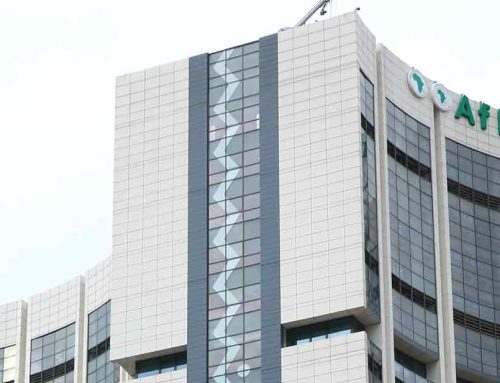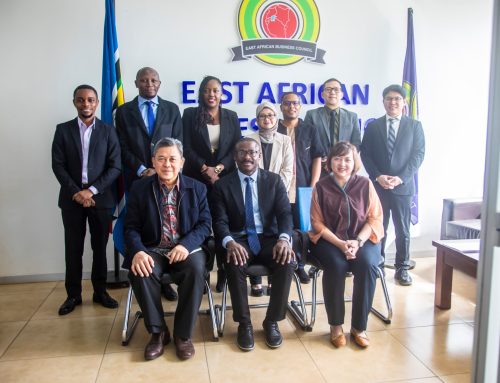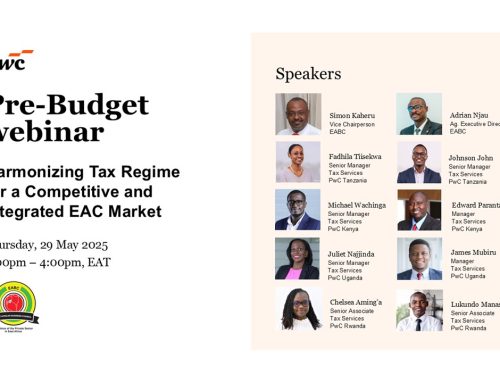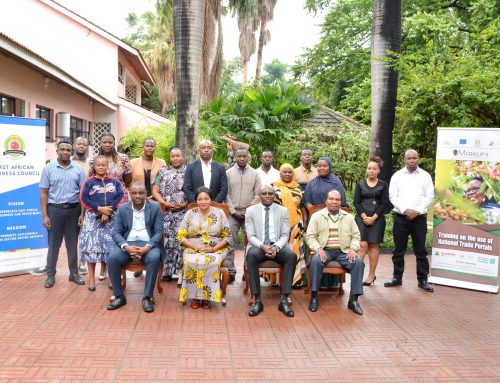EABC CEO Mr. John Bosco Kalisa took part in the 3rd High-Level Forum EAC Comprehensive Africa Agriculture Development Program (CAADP) Biennial Review Report held virtually on Monday 31st October 2022 whose main objective was to present Comprehensive Africa Agriculture Development Program (CAADP) Biennial Review Report to EAC Partner States and stakeholders in the food and agriculture sector.
This 3rd High-Level Forum convened dignitaries from the ministry of agriculture, trade industry, planning infrastructure, East African Legislative Assembly (EALA), officials from Alliance for a Green Revolution in Africa (AGRA), African Union Commission (AUC), TradeMark East Africa (TMEA) to deliberate on how to set up inclusive public private financing and investments in agriculture and food systems and solutions to bottleneck in the agricultural sector.
Speaking at Forum, Mr. Jean Baptiste, Director of Productive Sector of EAC representing the EAC Secretary General stated that the 3rd High-level Forum aims hold in-depth discussions on the core issues that impeded EAC Partner States to sustain stable food system. He stated the Governments of EAC Partner States are committed to invest in regional and national agricultural transformational plans.
Dr. Agnes Kalibata, President of Alliance for a Green Revolution in Africa (AGRA) said that, AGRA is building the backbone of agriculture sector urged EAC Partner States to boost inter-continental investment and mutual accountability.
On his part Mr. Darbe Simplice Nouala, Head of Agriculture and Food at the Department of Rural Economy and Agriculture of the African Union Commission (AUC-DREA) on behalf of H.E. Josefa Sacko, Commissioner, Rural Economy and Agriculture of the African Union Commission (AUC) urged EAC Partner States to invest more in climate resilience.
In his presentation, Mr. John Bosco Kalisa said that East Africa is the only region which did not slide into a recession amid COVID-19. He stated that Agriculture accounts for 25%-40% of EAC GDP ad employees over 80% of the population. He noted that more than 70% of the industries in the EAC are agro-based.
Mr. Kalisa elaborated that Russia’s war in Ukraine has disrupted East Africa’s promising recovery from the COVID-19 pandemic. The war has disrupted trade of goods and services, raising food and fuel prices, tightening the fiscal space, constraining green transitions and reducing the flow of development finance in the region.
Russia is the world’s 3rd oil producer, and also the largest wheat exporter in the world (almost 20% of global trade). Ukraine is a key producer of corn (6th largest), wheat (7th), sunflowers (1st), and is amongst the top ten producers for sugar beet, barley, soya and rapeseeds.
The East African Business Council urged EAC Partner States to review and ensure that national agriculture strategy is compliant with the CAADP principles and commitments to boost regional food production, supply and trade. In particular EAC Partner States should enhancing Investment Financing in Agriculture and boost Intra-African Trade in Agriculture Commodities and Services.
State of Play of Malabo Declaration
In June 2014 in Malabo, Equatorial Guinea, during the AU Assembly, Heads of State and Government adopted the implementation of the Malabo Declaration on “Accelerated Africa Agricultural Growth and Transformation for Shared Prosperity and Improved Livelihoods”. The Malabo Declaration has seven commitments.
Some EAC Partner States that managed to showcase resilience in health sector and food system sustainability. This included introducing distribution of seeds and fertilizers to farmers, introduction of new policies of food distribution to consumers, enactment of trade measures and regulations as quick-win solutions to facilitate the import and export across EAC borders and mitigate the effect of the pandemic. The Republic of Rwanda was ranked as the top performing country in Africa in implementing Malabo commitments in the 1st and 2nd Biennial Review reports (2017 & 2019).
Key challenges in the agricultural sector in EAC include:
Low crop and livestock productivities
High post-harvest losses
Minimal value addition
Poor infrastructures
Low level use of improved technologies and irrigation
Inappropriate policies that directly or indirectly tax the agriculture sector
NTBs for cross border trade in the EAC
Other recommendations set to improve the agricultural sector in the EAC region include:
Investment in agro related value chains
Strengthening Research & Development, technology & innovation
Increase regional food supply
Industrial value addition of agricultural commodities
Leveraging on the African Continetal Free Trade Area (AfCFTA) as a driver for intra-regional agri-food markets
Modern farming technology
Digital and biotechnologies and the transformation of food systems





